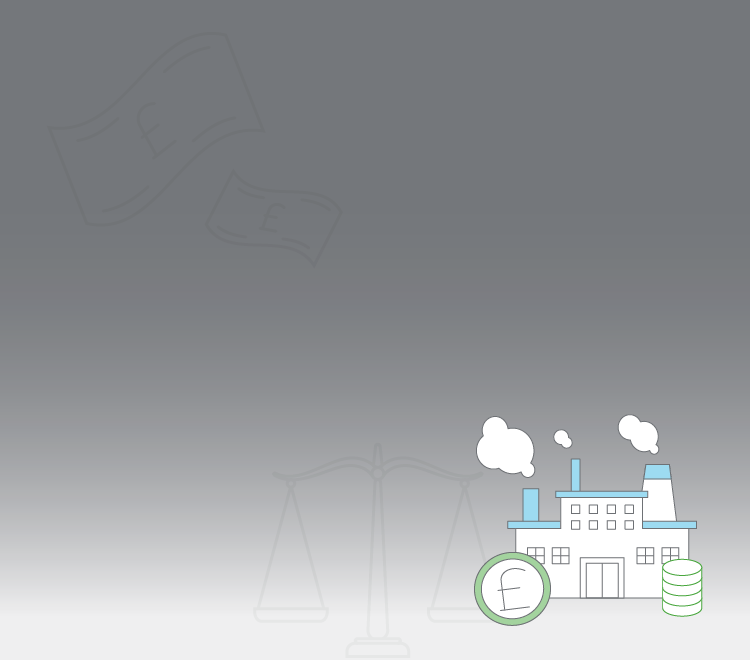02 November 2022
Following the Autumn statement, many manufacturers will have been disappointed but not surprised at the Chancellor’s unwillingness to further incentivise investment through changes to the capital allowances regime. Government has a crucial role to play in incentivising capital investment across industry. No doubt boosting the UK’s business investment is one of the prime minister’s top priorities.
Capital investment by UK businesses is 10% of GDP, compared with the average of 13% in the US, Germany and France. British businesses lag behind their international competitors when it comes to capital investment, and this is holding back the UK’s growth.
A more generous capital allowance regime that is in place for longer, will help increase capital investment and generate the growth that the government craves.
Our latest survey findings
Our latest survey of manufacturers, run in partnership with Make UK, highlights the need to encourage investment by improving the current capital allowance regime.
Manufacturers indicated that the best type of government incentives were short-term schemes like super-deduction. This was true for just over half (51%), while 46% believed the annual investment allowance to be a great incentive.
Interestingly, 43% of businesses also indicated that their investment decisions were based solely on business need – they were not motivated by government support. This highlights how difficult it is for the government to strike the correct balance between providing incentives and protecting the public purse.
As a result, it may be tempting to speculate that capital allowances are merely a ‘nice to have’, regardless of what’s on the table. But it’s more likely this finding reflects that the value and length of incentives are not significant enough to affect decision making. Therefore further improvements to the capital allowance regime are needed to encourage more capital investment in future.
The one word we hear time and time again from our clients regarding capital allowance tax incentives is ‘certainty’. This is confirmed by our survey, which show that a permanent annual investment allowance of £1m is the preferred choice of manufacturers when they’re presented with a variety of investment incentive options.
Regrettably, the only consistent thing about the Annual Investment Allowance (AIA) is that its value has consistently changed since its introduction in April 2008 (at one point, it went as low as a barely credible £25,000). So it’s welcome news that the government has announced that the £1m AIA will be made permanent.
We hope that the past is not a guide to future performance, and this decision is not reversed in future Budget statements. UK productivity and growth depends on much-needed capital investment, and this change will give manufacturers the certainty they need to invest more in plant and machinery.
So, what about the super deduction scheme?
The Super Deduction scheme is, without doubt, generous. But the two-year window (which closes on 31 March 2023) is just too short.
Many UK businesses have shared with us their stories of supply chain issues when ordering new plant and machinery. These may be caused by global factors outside their control, but still result in missing out on the associated substantial tax cash flow benefit.
In the current climate, a long lead time from suppliers is arguably the norm for plant and machinery. That means those in the manufacturing sector can be especially at risk of missing out on the benefits of the super-deduction scheme.
More generally, our survey findings indicate that investment cycles vary hugely across the manufacturing sector, particularly when it comes to plant and machinery. It’s not a stretch to say that lucky timing, rather than strategic business planning, could be a determining factor in whether a business can benefit from schemes with short windows – like the super deduction scheme. Such an outcome does not seem fair.
It was no surprise that 40% of our respondents believe that an extension to the super-deduction scheme or the introduction of an additional first -year allowance would further incentivise investment. This indicates that manufacturing businesses recognise both the potential benefits ‘super’ capital allowances can bring, and their link with investment and growth.
Although we recognise that manufacturing businesses crave certainty, incentivisation must come with a time limit (though the current two-year window is just too short). A longer period – perhaps three to six years – would incentivise businesses in the short to medium term. Crucially, it would also better reflect industry investment cycles and the time lag between identifying an investment need or opportunity and the expenditure being incurred on capital investments.
Such changes would help to cushion the impact on manufacturing businesses of the increase in the corporation tax rate to 25% from April 2023. They would also provide the sector with the longer-term certainty it needs to make the capital investment that will improve productivity and drive growth.
Key considerations for manufacturers
Despite becoming increasingly digitalised, manufacturing remains a capital-intensive sector that must invest continuously to grow. In 2021, the industry’s total investment accounted for 16% of total business investment. But this figure is 3% below the level of investment made in the pre-pandemic year.
We remain in a period of significant uncertainty. The expiry date for the super-deduction scheme is fast approaching, and it’s possible there are more announcements to come from HM Treasury’s capital allowances reforms consultation document. Bold investment and growth plans do not arise naturally in such circumstances.
However, there are still important steps businesses can take to optimise their capital allowances claims. At a minimum, we would recommend:
- ensuring that their professional advisors are providing forward thinking, proactive guidance on the availability of the super-deduction capital allowance scheme; and
- reviewing their historic capital expenditure, to ensure that all available capital allowance tax incentives have been claimed.










